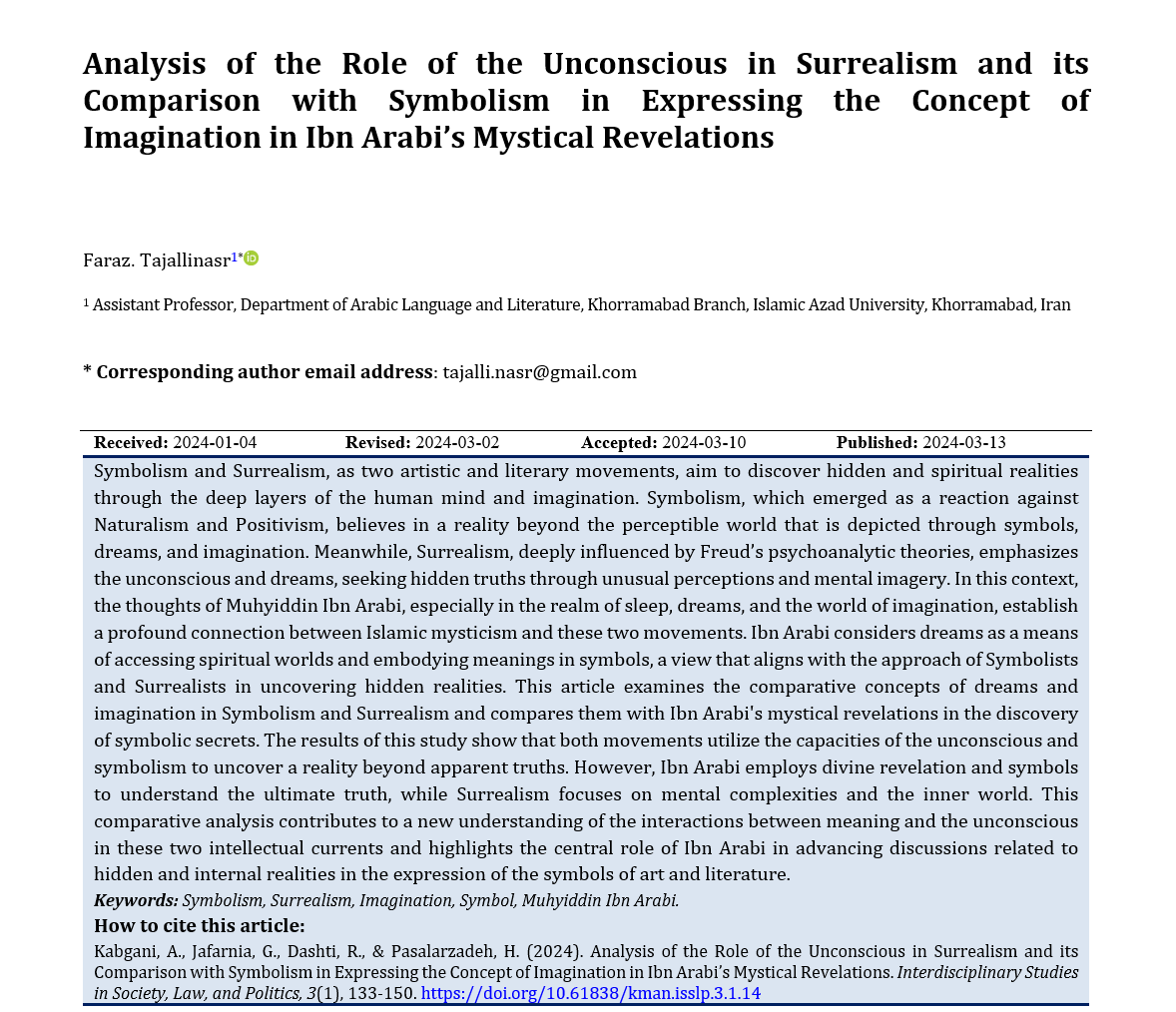Analysis of the Role of the Unconscious in Surrealism and its Comparison with Symbolism in Expressing the Concept of Imagination in Ibn Arabi’s Mystical Revelations
Keywords:
Symbolism, Surrealism, Imagination, Symbol, Muhyiddin Ibn ArabiAbstract
Symbolism and Surrealism, as two artistic and literary movements, aim to discover hidden and spiritual realities through the deep layers of the human mind and imagination. Symbolism, which emerged as a reaction against Naturalism and Positivism, believes in a reality beyond the perceptible world that is depicted through symbols, dreams, and imagination. Meanwhile, Surrealism, deeply influenced by Freud’s psychoanalytic theories, emphasizes the unconscious and dreams, seeking hidden truths through unusual perceptions and mental imagery. In this context, the thoughts of Muhyiddin Ibn Arabi, especially in the realm of sleep, dreams, and the world of imagination, establish a profound connection between Islamic mysticism and these two movements. Ibn Arabi considers dreams as a means of accessing spiritual worlds and embodying meanings in symbols, a view that aligns with the approach of Symbolists and Surrealists in uncovering hidden realities. This article examines the comparative concepts of dreams and imagination in Symbolism and Surrealism and compares them with Ibn Arabi's mystical revelations in the discovery of symbolic secrets. The results of this study show that both movements utilize the capacities of the unconscious and symbolism to uncover a reality beyond apparent truths. However, Ibn Arabi employs divine revelation and symbols to understand the ultimate truth, while Surrealism focuses on mental complexities and the inner world. This comparative analysis contributes to a new understanding of the interactions between meaning and the unconscious in these two intellectual currents and highlights the central role of Ibn Arabi in advancing discussions related to hidden and internal realities in the expression of the symbols of art and literature.
Downloads






